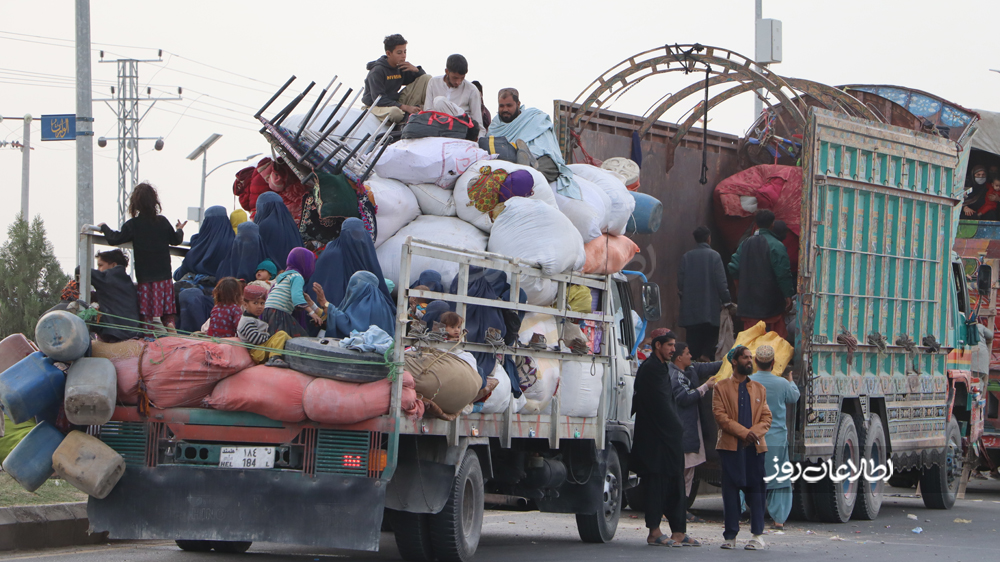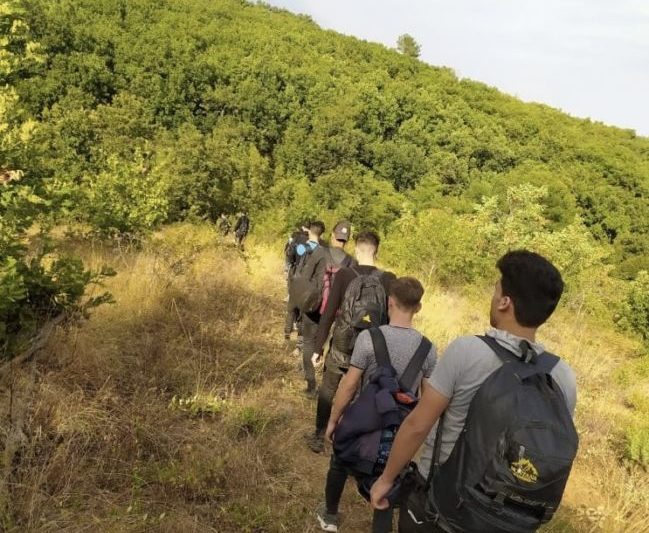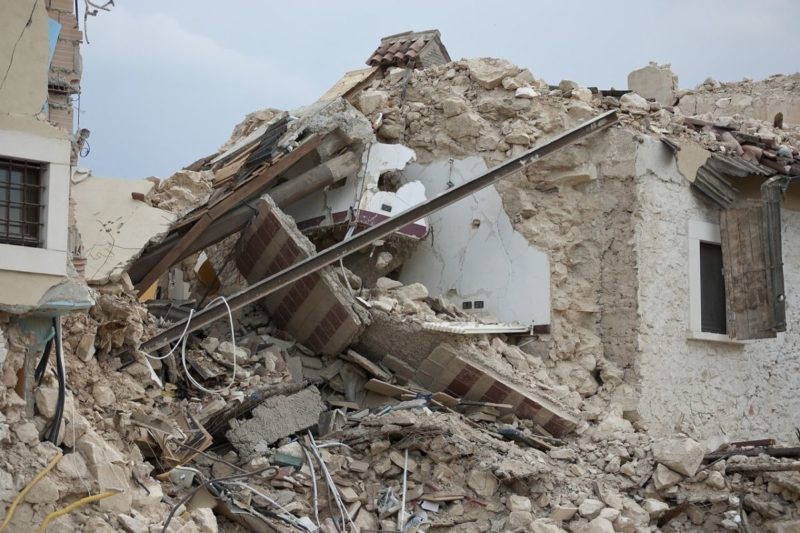“If I go back to Afghanistan, the Taliban will kill me !”

Since September 2023, more than 400.000 refugees have been deported or returned from Pakistan to Afghanistan.
Depuis septembre 2023, le gouvernement du Pakistan a annoncé que plus de 400 000 réfugiés afghans ont été expulsés ou renvoyés du Pakistan en seulement trois mois.
Lorsque la décision a été prise le 3 octobre d’imposer l’expulsion des réfugiés « illégaux », le ministre de l’Intérieur par intérim, Sarfraz Bugti, a déclaré que sur les 24 attentats suicide survenus dans le pays cette année, 14 avaient été perpétrés par des civils venus d’Afghanistan.
À l’approche d’un hiver rigoureux et de la « détérioration » de la situation humanitaire en Afghanistan, les Nations Unies et leurs agences partenaires ont une fois de plus appelé les gouvernements à cesser immédiatement l’expulsion d’un grand nombre d’Afghans.
Il y a 1,3 million de réfugiés afghans vivant au Pakistan qui sont officiellement enregistrés, et 840 000 autres possèdent une carte de citoyenneté, qui offre une certaine protection. On estime qu’environ 1,5 million d’Afghans, dont 600 000 sont entrés au Pakistan lorsque les autorités de facto afghanes ont pris le pouvoir en août 2021, y vivraient sans aucun papier officiel.
Pas clairement indiqué
Les demandes généralisées d’expulsions massives de la part des autorités pakistanaises ont conduit à une augmentation des mauvais traitements policiers envers les Afghans, notamment des arrestations injustifiées, du harcèlement et de la violence. Bien que cela ne soit pas clairement indiqué, il est peu probable que les Afghans qui seront expulsés aient la possibilité de contester cette décision.
Human Rights Watch a rapporté que pour forcer les Afghans vivant au Pakistan à retourner dans leur pays d’origine, les autorités pakistanaises les ont systématiquement maltraités. La police et d’autres responsables ont procédé à des arrestations massives, à des saisies de bétail, à la destruction de documents d’identité et à d’autres mesures destinées à chasser des milliers de réfugiés et de demandeurs d’asile afghans.
Selon certaines informations, les autorités pakistanaises ont forcé les Afghans en attente de réinstallation aux États-Unis, au Royaume-Uni et dans d’autres pays, mais qui ne peuvent pas obtenir ou renouveler leur visa, à payer des frais de sortie de 830 dollars américains. Ces frais s’appliquent uniquement aux personnes qui ne voyagent pas en Afghanistan.
“La police a également détruit des maisons.”
En plus de demander des pots-de-vin, la police a également détruit des maisons en les détruisant au bulldozer et en saisissant des bijoux, du bétail et d’autres objets. Des femmes afghanes ont informé Human Rights Watch que la police pakistanaise avait intimidé, harcelé et agressé sexuellement certaines femmes et filles afghanes.
When winter arrived and the nation was dealing with a protracted economic crisis that left two-thirds of the populace in need of humanitarian aid, the United Nations High Commissioner for Refugees (UNHCR) declared on November 17 that the hundreds of thousands of Afghans who had arrived “couldn’t have come at a worse time“. Many Afghans returning to Afghanistan are completely penniless. They have left behind their enterprises since Pakistani authorities have made it illegal for them to take more than 50.000 Pakistani rupees (US$175) per person out of the country. Not enough tents or other necessities are available for those who arrive, according to humanitarian organizations.
People entering Afghanistan need both immediate aid at the border and ongoing assistance in their return locations because of their extreme vulnerability. This is a major humanitarian crisis, and funding is critically needed to begin help as soon as it is available, allowing people to return in safety and dignity.
Governments make decisions based on various factors, including political, economic, and social considerations. If there have been changes in the treatment of Afghan refugees by the Pakistani government, it is useful to check the latest news sources or official statements for the most up-to-date information on the reasons behind such actions. Keep in mind that geopolitical situations and policies can change, and it is essential to refer to current sources for accurate details.
Forced to flee
Human Rights Watch announced that Afghanistan asylum-seekers without legal status are being threatened, mistreated, and detained by Pakistani authorities and are being forced to return to their home country by November 1, 2023, or face deportation. A large number of Afghans who face deportation are awaiting resettlement to the US, UK, Germany, and Canada. Their savings and possessions were taken from them when they were forced to flee.
To avoid deporting Afghanistan migrants and asylum-seekers without documentation during the winter, The UN High Commissioner for Refugees has ordered Pakistan to cease these actions, because Afghanistan’s cold weather is extremely dangerous and has the potential to kill.
Last month, Pakistan set a deadline for “illegal” migrants, including 1,7 million Afghanistan nationals, to leave the country.
According to refugees from Afghanistan, police in Pakistan are searching refugee camps, from house to house, for those who have not left the country freely. If they are found to possess no documentation, they may be deported.
In addition, the process of forcibly deporting immigrants has strained ties between Islamabad and Kabul. According to reports in Pakistani media, which cite official sources, Pakistan is ceasing to provide foreign assistance to the Taliban regime.
“The Taliban will kill us.”
On November 25, 41-year-old Nasima Azimi, an activist from Afghanistan living in a one-room apartment with four members of her family in Peshawar, in very bad conditions, told a Latitudes journalist that Pakistani police were searching house-to-house for refugees and asking for documents, not listening to people, and forcing them to leave. She said, “If we go to Afghanistan, the Taliban will kill us, and if we stay here, the Pakistani police will put us in jail. This is a very difficult time. I don’t know where we should go!” Nasima added: “If there is a knock on the door, my 10-year-old son panics and says, ‘don’t open the door!’. For a few days, we turn off the lights, so as not to show that we are living here.”
When the refugees are deported from Pakistan, this is not the only problem they face! When they arrive in Afghanistan, they also risk their lives. Dariush Ahmadi, a former member of the military who was forcibly deported to Afghanistan, sadly shared his story with a Latitudes journalist. He was very disappointed, he said. “Afghanistan is not a safe place for former military, especially if you are a Farsi speaker. I must get out of Afghanistan because they’ll kill me.”
“Our life is in danger inside and outside the country.”
Mohamad Jan Tamkin, a journalist with more than 25 years’ experience arrested by the Taliban in 2021 in the north of Afghanistan but later released, said: “Our life is in danger inside and outside the country.”
He was also arrested by Pakistani police a few weeks ago and released after information about him was published in the news and social media. In a phone conversation with Latitudes, he confirmed the violence against refugees by Pakistani police and added that the behavior of the police is unacceptable.
Tamkin, who is waiting to be interviewed by the French Embassy in Islamabad, criticizes the international community for taking no strong action in response to all kinds of violence against refugees. “That is why the Pakistani police are not listening to you and threaten to put you in jail or deport you, even if you have a visa.”
He has a visa, but has requested a visa for his family, which was refused by the Pakistani government. He repeated his request and hopes to receive a positive answer because they were waiting for the interview with the French embassy in Islamabad.
As the acting secretary of the Journalists’ Association in Pakistan, he said there are more than 80 journalists and hundreds of media workers in Pakistan. They are living in very bad conditions, and no one is listening to their difficulties. Tamkin said that because of the deportations, journalists are in a tragic situation and they ask the International Federation of Journalists (IFJ) and other press organizations to help journalists and activists.
“We are keeping an eye on, monitoring.”
The European Union’s spokesperson on foreign affairs and security policy, Peter Stano, told Latitudes at a press conference in Brussels that the EU is following this topic very seriously. He was concerned at the Pakistan government’s decision and voiced his alarm about the move, stating that it would especially impact women and girls from Afghanistan who return home and may be put in danger.
Diverse ethnic backgrounds
According to him, there are a lot of concerns about the return of one million undocumented Afghan immigrants to their home country, especially considering that they come from diverse ethnic backgrounds. “In general, we believe that Pakistan’s actions are inconsistent with its obligations under international law, especially given the Taliban government’s discriminatory policies against women and other ethnic groups in Afghanistan,” he said.
“We are keeping an eye on, monitoring, and coordinating this with international partners, as well as raising the matter with the authorities in Pakistan.”
Following the overthrow of the previous government, some 600.000 refugees from Afghanistan fled to Pakistan. Many Afghans are looking for a way out as a result of the country’s ongoing economic and humanitarian catastrophe, he added.
“How do we work as journalists ?”
Fatahna Hassanzada, who is living in fear in Pakistan, told Latitudes that the situation of refugees is very difficult. She worked for a few years on the radio Rabia Balkhi but now she has lost everything.
“If we go back to Afghanistan, we are not allowed to work, and the Taliban will put us in prison or kill us. Here they deport people by force to Afghanistan. Our life is in danger here or in my homeland,” said Fatahna. She appealed to European countries for help.
Khalida Nabizada is another women journalist living in a small apartment in harsh conditions in Pakistan because her visa has expired and is not being extended. She explained to Latitudes that to be a women and journalist in Afghanistan, especially during this time of “the Taliban cabinet”, is not easy. “You are facing death or threats of going to jail.” She worked for a few years with TV but now she too has lost everything.
Elle a ajouté qu’en Afghanistan, il n’existe pas de médias libres et que la liberté d’expression n’existe pas. « Les talibans ne nous permettent pas de sortir, alors comment travaillons-nous en tant que journalistes ? Elle a envoyé de nombreux emails à toutes les ambassades d’Islamabad et n’a reçu que des réponses automatisées, mais espère toujours recevoir très prochainement un email de soutien d’un pays.




